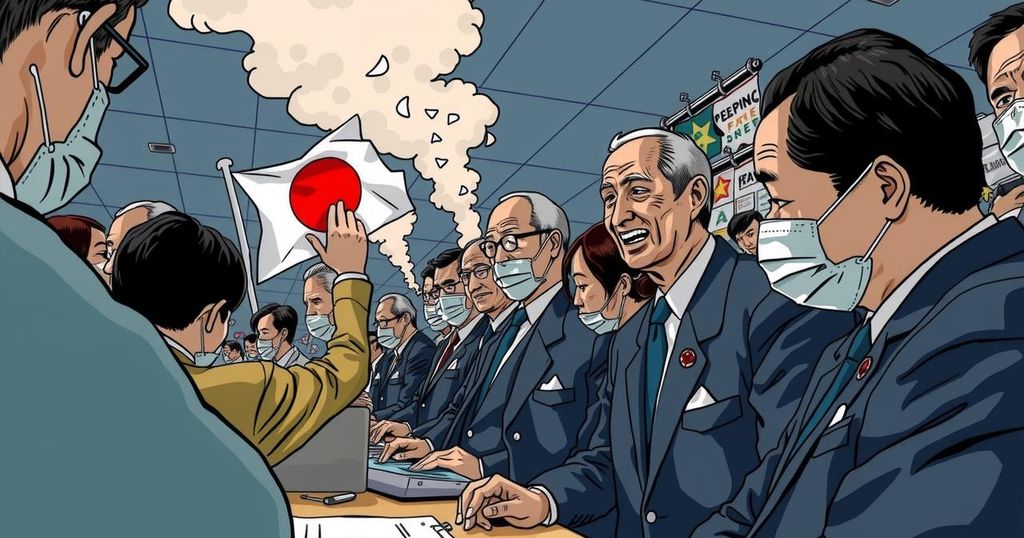Japan Faces Political Turmoil as Voter Discontent Grows

Japan’s snap parliamentary elections have upset the status quo, with the ruling Liberal Democratic Party losing its majority amid public discontent over economic stagnation and governance. The constitutional Democrats gained seats, but minor parties on both ends of the spectrum increased their presence, indicating a potential for greater political instability in Japan, as citizens express deep-seated frustrations.
Recent parliamentary elections in Japan have revealed growing dissatisfaction among voters, leading to significant challenges for the historically dominant Liberal Democratic Party (L.D.P.). Despite their long-held position, the L.D.P. has lost its majority in the lower house, signaling a potential shift in the political landscape. While the Constitutional Democrats, another centrist party, rose to second place, the elections also saw gains from both conservative and progressive minor parties. This shift is indicative of a deeper sense of discontent rooted in three decades of economic stagnation and worsening living conditions, especially among younger generations. Kunihiko Miyake, a former diplomat, noted that citizens express mounting frustration over their economic circumstances, which transcends mere political scandals or financial issues. Hence, the election results suggest a pivotal moment for Japan’s political stability, raising concerns that the nation may no longer be insulated from the turbulent political currents influencing much of the world today.
The article provides insight into the recent changes in Japan’s political scene following the snap parliamentary elections. Japan has traditionally been regarded as a stable democracy, successfully fending off the rise of populism that has affected various countries globally. However, the political landscape is shifting as the electorate expresses significant grievances, particularly related to economic issues and governance, which could lead to unprecedented instability. Understanding these factors is crucial for analyzing the potential implications of the election results on Japan’s future governance and social climate.
The snap election has marked a critical juncture in Japan’s political narrative, exposing a growing divide between the ruling party and the electorate’s expectations. The loss of majority by the Liberal Democrats, along with the rise of both fringe parties, hints at a potentially chaotic future for one of Asia’s historically stable democracies. As voters seek accountability and substantive change in response to long-standing economic grievances, the implications of this election may precipitate significant shifts in Japan’s political dynamics going forward.
Original Source: www.nytimes.com







